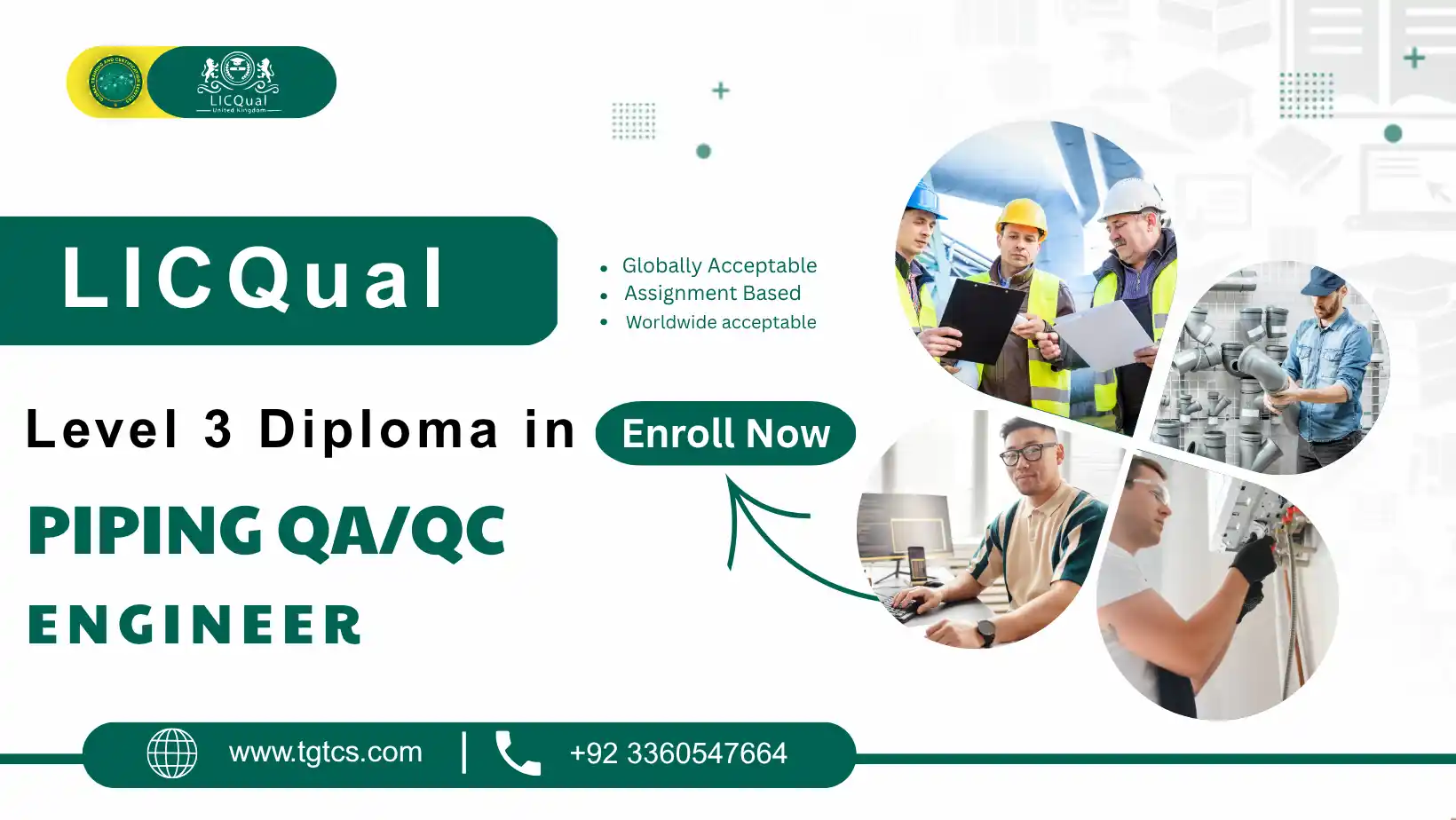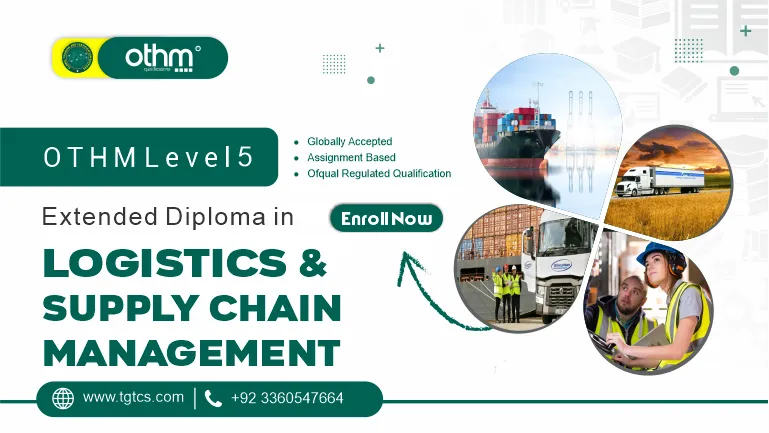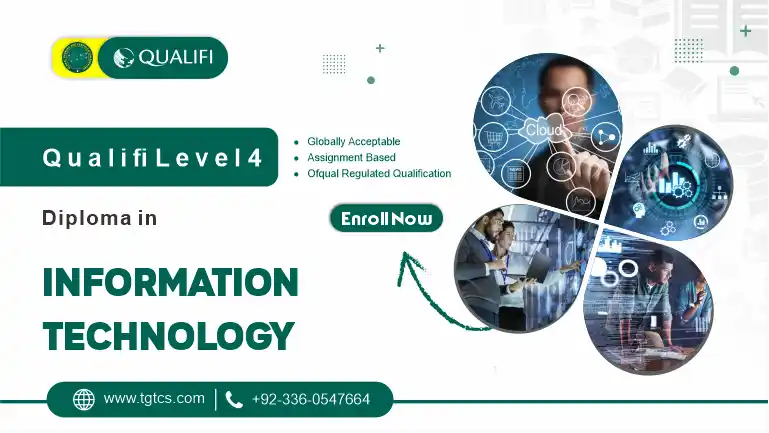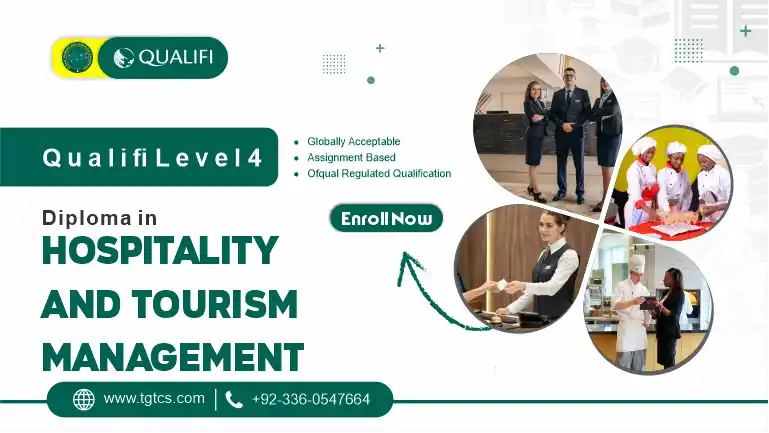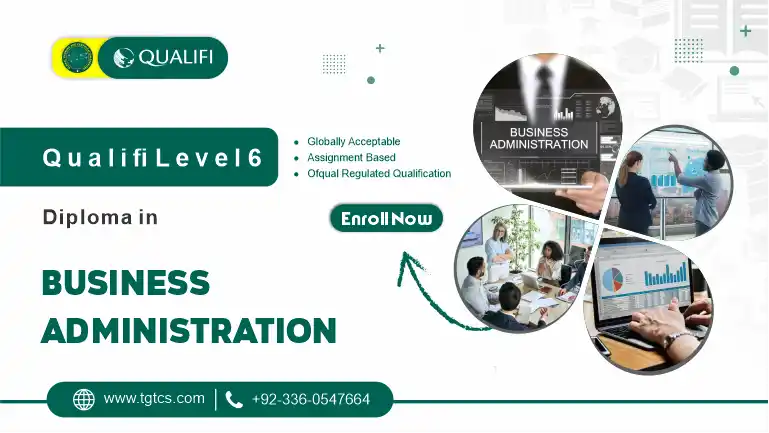LICQual Level 3 Diploma in Piping QA/QC Engineer
The LICQual Level 3 Diploma in Piping QA/QC Engineer is a globally recognized qualification designed for professionals who want to build a strong career in the oil & gas, petrochemical, power plant, and construction industries. This diploma provides the essential knowledge and practical skills required to perform quality assurance (QA) and quality control (QC) functions in piping systems, welding inspection, and related engineering projects.
Through this certification, learners will gain a solid understanding of international codes, standards, inspection techniques, testing procedures, and documentation processes required in the piping and welding industry. With its British Council verification and MOFA/Embassy attestation, the qualification is highly valued by employers worldwide and ensures better career opportunities, job security, and approvals for work visas and iqama in Gulf and other international markets.
Whether you are an entry-level engineer, technician, or a working professional looking to enhance your expertise, this diploma is your gateway to becoming a qualified QA/QC Piping Engineer. By completing this program, you will be equipped with the technical competence and professional recognition needed to excel in demanding industrial projects and achieve long-term career growth.
The Global Training and Certification Services is Approved Training Centre of ICTQual AB UK Ltd
The LICQual Level 3 Diploma in Piping QA/QC Engineer is an internationally recognized qualification designed to develop professional competence in piping inspection, welding QA/QC, and project quality management. This program equips learners with practical expertise, global standards knowledge, and the skills required to work in high-demand industries such as oil & gas, power plants, and construction.
Key Highlights of the Course
- Covers QA/QC procedures, material inspection, welding processes, and international standards.
- Includes training on documentation, reporting, and compliance for industrial projects.
- Focuses on practical skills to meet industry needs in piping and welding engineering.
Global Recognition & Verification
- British Council verifiable certification for international authenticity.
- MOFA and Embassy attestation ensures acceptance in multiple countries.
- Highly beneficial for job approval, iqama approval, and visa processing in the Gulf and abroad.
Who Should Enroll
- Engineers, inspectors, and technicians aiming for QA/QC roles in piping and welding.
- Fresh graduates seeking a strong entry point into oil & gas or construction industries.
- Professionals looking to boost their career with a globally recognized qualification.
Mandatory Unit
- Advanced Piping Design and Isometric Drawing Interpretation
- International Standards and Codes (ASME, API, ANSI, ASTM)
- Welding Inspection, NDT Methods, and Testing Procedures
- Piping Fabrication, Erection, and Installation Quality Control
- QA/QC Procedures and Project Quality Planning
- Practical QA/QC Case Studies and Site Reporting Techniques
By the end of this course, applicants will be able to:
1. Advanced Piping Design and Isometric Drawing Interpretation
- Analyze complex piping engineering designs and isometric drawings to accurately identify components, dimensions, and specifications.
- Apply advanced interpretation skills to translate isometric drawings into practical applications for piping fabrication, erection, and installation.
- Evaluate piping design layouts against project requirements to ensure compliance with engineering and quality standards.
- Develop solutions to design-related challenges in piping systems to enhance quality and operational efficiency.
2. International Standards and Codes (ASME, API, ANSI, ASTM)
- Interpret and apply international standards and codes, such as ASME B31.3, API 1104, ANSI, and ASTM, to ensure compliance in piping projects.
- Assess the relevance of specific standards to different piping applications, considering factors like material, pressure, and environmental conditions.
- Implement quality control measures aligned with global codes to ensure the safety and reliability of piping systems.
- Verify compliance with international standards through documentation and inspection processes in QA/QC workflows.
3. Welding Inspection, NDT Methods, and Testing Procedures
- Conduct detailed welding inspections to identify imperfections, such as cracks or incomplete fusion, ensuring compliance with quality standards.
- Apply non-destructive testing (NDT) methods, including ultrasonic, radiographic, and magnetic particle testing, to evaluate piping integrity.
- Interpret NDT results and testing outcomes to assess weld quality and recommend corrective actions when necessary.
- Execute welding and testing procedures safely and accurately, adhering to industry best practices and project specifications.
4. Piping Fabrication, Erection, and Installation Quality Control
- Implement quality control procedures during piping fabrication, erection, and installation to ensure adherence to project specifications.
- Identify and address defects or non-conformities in piping fabrication and installation processes to maintain structural integrity.
- Monitor and verify alignment, fit-up, and assembly techniques to ensure high-quality piping installations.
- Collaborate with project teams to integrate quality control measures throughout the fabrication and installation phases.
5. QA/QC Procedures and Project Quality Planning
- Develop and implement QA/QC procedures to ensure consistent quality across all phases of piping projects.
- Create comprehensive project quality plans that align with client requirements, industry standards, and regulatory guidelines.
- Evaluate the effectiveness of QA/QC procedures through audits and inspections to identify areas for improvement.
- Coordinate with stakeholders to integrate quality planning into project timelines, budgets, and resource allocation.
6. Practical QA/QC Case Studies and Site Reporting Techniques
- Analyze real-world QA/QC case studies to identify best practices and solutions for common piping project challenges.
- Apply practical QA/QC techniques to address issues like material defects, welding errors, or installation non-conformities.
- Develop accurate and detailed site reports to document inspection findings, non-conformities, and corrective actions.
- Utilize effective communication and reporting techniques to present QA/QC outcomes to project teams and stakeholders.
The LICQual Level 3 Diploma in Piping QA/QC Engineer offers learners a wide range of academic, professional, and career benefits. This qualification not only enhances technical knowledge but also provides internationally recognized certification, ensuring global opportunities in QA/QC piping and welding engineering.
Professional Growth
- Gain advanced skills in QA/QC inspection, welding, and piping systems.
- Improve technical competence in line with international standards and codes.
- Boost career progression in oil & gas, petrochemical, and construction industries.
International Recognition
- Certification is British Council verifiable for global credibility.
- MOFA and Embassy attestation makes it valid across multiple countries.
- Increases chances of job approval, visa clearance, and iqama approval abroad.
Career Opportunities
- Access high-demand roles such as QA/QC Engineer, Welding Inspector, and Piping Supervisor.
- Stand out in competitive job markets with an internationally respected qualification.
- Enhance employability in Gulf countries, Middle East, and international projects.
Practical Knowledge & Skills
- Learn inspection techniques, documentation processes, and compliance requirements.
- Gain hands-on understanding of NDT, welding processes, and piping materials.
- Build industry-relevant expertise to handle real-world project challenges.
Long-Term Value
- Secure a qualification that strengthens your resume for years to come.
- Opens doors to higher-level certifications and advanced QA/QC diplomas.
- Acts as a career investment with long-lasting recognition and benefits.
The LICQual Level 3 Diploma in Piping QA/QC Engineer is designed for learners who want to advance their technical expertise, gain international recognition, and build a successful career in the piping and welding inspection field. This course is best suited for individuals who are committed to working in industries such as oil & gas, petrochemicals, power plants, and construction, where QA/QC skills are in high demand.
Engineering & Technical Professionals
- Engineers and supervisors working in piping, welding, or related engineering fields.
- QA/QC inspectors seeking formal qualification to strengthen their professional profile.
- Professionals aiming to move into senior quality assurance or project management roles.
Fresh Graduates & Job Seekers
- Students and recent graduates of mechanical, civil, or industrial engineering.
- Individuals looking to enter the oil & gas, petrochemical, or construction sector.
- Job seekers who need a globally recognized diploma to secure employment abroad.
Skilled Workers & Technicians
- Welders, fabricators, and piping technicians aiming to transition into QA/QC roles.
- Skilled workers who want to upgrade their knowledge to international QA/QC standards.
- Professionals seeking iqama approval, visa clearance, and international job placements.
Career-Oriented Individuals
- Those committed to long-term professional growth in technical inspection and quality control.
- Learners who want a career investment with British Council verifiable certification.
- Individuals eager to improve job security, promotions, and global career mobility.
Course Overview
Course Level
Level 3
Course Units
6 Units
Credits
60
